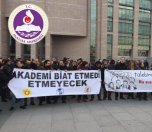"We are insistent on our demand for peace!
"We will not be a party to this crime!"
Click to read the article in Turkish
On the occasion of Human Rights Week, which also marks the 71st anniversary of the United Nation's (UN) adoption and proclamation of Universal Declaration of Human Rights (UDHR), we are sharing the story of Academics for Peace, whose almost all rights and freedoms guaranteed by the Declaration have been violated.
Accordingly, we have compiled the violations of rights suffered by Academics for Peace from two reports by the Human Rights Foundation of Turkey (TİHV) Academia, namely "State of Emergency of University: A Study on Destruction of Academic Environment" and "Discharges of Academics: Rights Violations, Losses and Processes of Trauma and Empowerment".
Several academics from across the country signed a declaration about the curfews in the Kurdish provinces of Turkey on January 11, 2016.
The declaration entitled "We will not be a party to this crime" requested an end to civilian deaths and the establishment of peace. Reminding the responsible parties of the most fundamental rights such as the right to life, academics were targeted by authorities, mainstream media and criminal organizations right after they shared the declaration with the public.
406 Academics for Peace were discharged from public service by Statutory Decrees that were issued within the scope of State of Emergency, which was declared on July 20, 2016 in the wake of July 15 coup attempt and remained in force for two years.
Being discharged from public service has led to some common legal consequences and violations of rights for all discharged public officers. Manifesting that each right violation led to yet another violation - which, in a sense, brought about a circle of violations -, the reports have shared the following observations:
Discharges and violations
The discharges which do not have anything to do with any objective criteria or individual evidence violated the "right to a fair trial" and "presumption of innocence" guaranteed by the Declaration.
As the discharged academics had difficulties in finding legal and administrative authorities that they could address their objections to, a new Statutory Decree completely prevented the academics from appealing to court for objections, thereby violating the "right to an effective remedy by the competent national tribunals" guaranteed by the Declaration.
CLICK - Constitutional Court: We Could Disagree with Signatory Academics
The passports of discharged academics were confiscated, again in violation of the UDHR article on "freedom of movement". The academics' right to "a standard of living" was similarly violated as they were prevented from leading a life compatible with human dignity.
There were no ongoing investigations or prosecutions against most of the academics at the time of their discharge. However, Academics for Peace were frequently targeted by high state officials and they made the headlines in mainstream media outlets, sometimes with their pictures. The threats and attacks they faced violated their right to life, liberty and security guaranteed by the UDHR.
Losses and trauma
Academics for Peace were targeted, subjected to smears and lynch on social media, threatened and attacked, faced investigations and discharges. That being the case, their call for peace resulted in a traumatic process.
After the peace declaration was shared with the public, academics were subjected to political violence, which is "a type of violence inflicted by states, organized communities or groups on other states or on the people that live within the borders of their own state (predominantly on civilians) for the sake of political purposes."
Losses of job
The losses of job caused by political violence triggered economic losses; the academic impediments in pre-discharge period triggered academic losses with the onset of discharge process; social losses and the spiral of rights violations-trauma-losses triggered health effects/health problems that were mentioned by the academics.
With their right to work violated and directly targeted by a wide spectrum of people, including the top political figures, Academics for Peace had to have more than one job so as to make a living and sustain their lives.
CLICK - Academics for Peace: We Request Our Unconditional Reinstatement
Called "terrorists", "traitors" or "colonial academics" by people ranging from the top state figures to academic circles and, thereby, being declared "objectionable" in a sense, Academics for Peace had to find jobs and work in extremely precarious, insecure and challenging conditions. What they usually did to make a living under these circumstances was basically to multiply their sources of income.
According to the TİHV reports, after they were discharged from public service, academics started working in fields that can be grouped into three main categories, namely "knowledge intensive service jobs", "other service jobs" and "knowledge intensive personal jobs."
Academic losses
Yet another consequence faced by the academics was the impediments to their academic works:
* Their domestic and international academic assignments were cancelled, their research permissions, incentive funds and publication grants were not given.
* Academics for Peace were removed from councils and commissions regardless of meritocracy as "a way of discrediting, derogating and punishing them."
* Their classes were cancelled without any official decisions or their classes were not opened in fact.
* While some universities hurriedly launched investigations against the signatory academics and dismissed them after they signed the declaration, there were also some universities that put the names of academics on discharge lists without launching an investigation or taking any administrative action.
* They were suspended from duty without being notified.
* They were not employed as permanent staff.
* Some universities, including the foundation (paid) universities, dismissed Academics for Peace by not renewing their contracts.
* Their scientific research projects were cancelled.
* Their applications for Associate Professorship were suspended.
* Their MA thesis advisory was cancelled.
Social losses
* After they were discharged from public service, several Academics for Peace had to move out of their districts and neighborhoods or move in with their families, which had a direct impact on their social lives.
* Though the academics were wholeheartedly supported by their families and immediate circle of friends and relatives, they were not supported by their colleagues to a considerable extent.
* All of the Academics for Peace that the TİHV consulted for the reports were of the opinion that they were blacklisted by the state. Academics developed doubts and insecurity towards the society as a result of practices of isolation, discrimination, rejection and closure/arrest caused by extensive methods of oppression such as being targeted by the media, arrested due to their social media posts, losing their jobs or being arrested after they were reported and the use of these methods as a means of daunting and intimidating the public.
Academics have indicated that they do not feel legally safe in Turkey and 97.1 percent have said that they do not feel safe in the country at all. While 93 percent of the academics think that they are subjected to discrimination in Turkey, 92.6 percent are of the opinion that they will be subjected to intimidation or pressures even if they are reinstated in their jobs. Moreover, 91.3 percent think that there are prejudices against them, 83.6 percent think that they are perceived as threats by the society and 42.8 percent think that they will never regain their value in the eyes of the society.
* Health problems, or losses of health, were also among the consequences suffered by the academics as a result of rights violations they faced.
According to the TİHV reports, almost half of the academics indicated that they had physical health problems that they thought to be affected or caused by the process of discharges (even though they have now recovered) and two thirds of the academics said that they had mental health problems. The most frequently reported mental health problems were sleep problems (62.8 percent), concentration and attention deficit (61.9 percent), affective withdrawal or collapse/depression (58.3 percent), temper (49 percent); and the most frequently reported psychosomatic health problems were palpitation (23.1 percent), shortness of breath (17.4 percent), chest pain (11.6 percent) and high blood pressure (9.5 percent).
Processes of overcoming trauma
The report has also shared observations regarding the relationships the discharged academics developed with each other and different segments of society as well as how these relationships contributed to their processes of overcoming trauma:
* Of the academics consulted as part of the reports, 93.4 percent meet the academics discharged from their own universities as well as other universities and 62 percent meet the ones discharged from public institutions other than universities.
* 64 percent of the academics referred to a political struggle as an element of this relationship, which also helps to share the legal processes (88 percent).
* While 93 percent of the academics defined this relationship as solidarity, 96 percent viewed it as friendship.
* The importance of these relationships in meeting economic needs in this process is one of the observations put forward by the reports. That is, 88 percent of the academics indicated that they received financial support after being discharged. While the rate of those who did not need support was 8 percent, 4 percent of the academics either did not accept an offer of support or did not say that they were in such a need at all. (TP/SD)





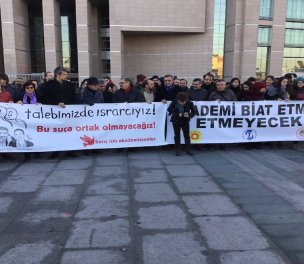
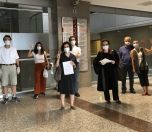
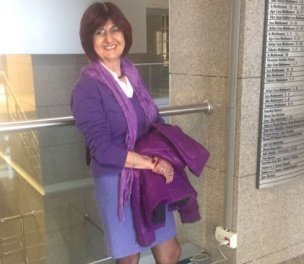
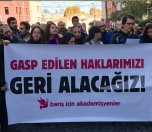
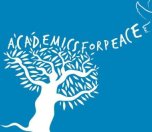


dklsajkx.jpg)

